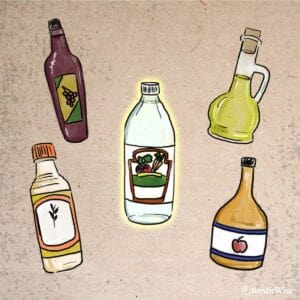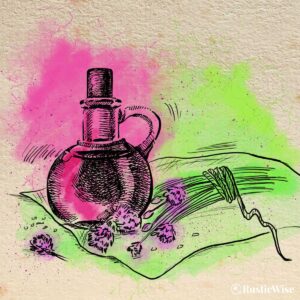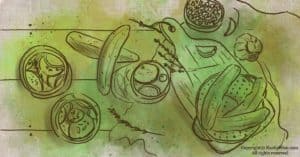How Long Can Eggs Last in the Fridge?
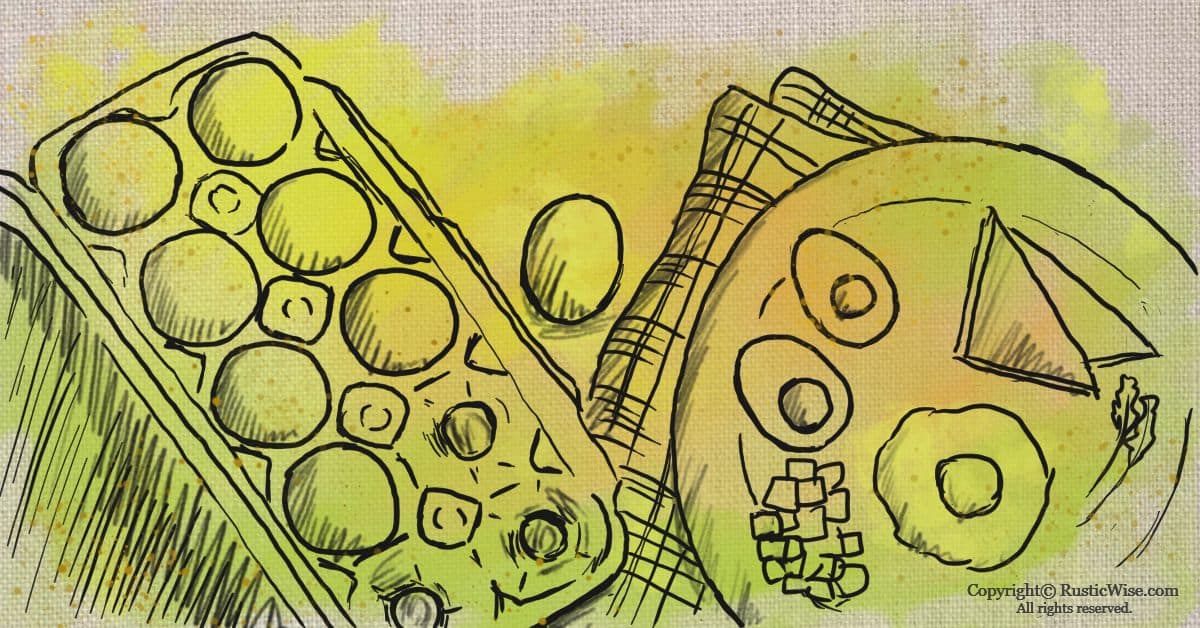
Sometimes food sits forgotten in the fridge. While it’s easy to tell with some types of food whether it has gone bad (a simple ‘see and smell’ test usually does the trick), eggs are a bit trickier.
So, how long can eggs last in the fridge? Well, that depends.
If you have a carton of raw eggs from the store, you’ll see either a ‘best before’ date or a ‘sell-by’ date. While packaging guidelines and food regulations vary from country to country, generally eggs are good for four to five weeks beyond the carton’s date of packaging (also known as the Julian date).
The Julian date is a three-digit number that chronologically indicates the days of the year with January 1 being 001, January 2 being 002, and so on. Check out this handy Julian calendar converter.
The best before date indicates the date the eggs are guaranteed to maintain their grade or quality level. Older eggs may still be safe to use which is egg-cellent news for those of us not wanting to make a run to the grocery store.
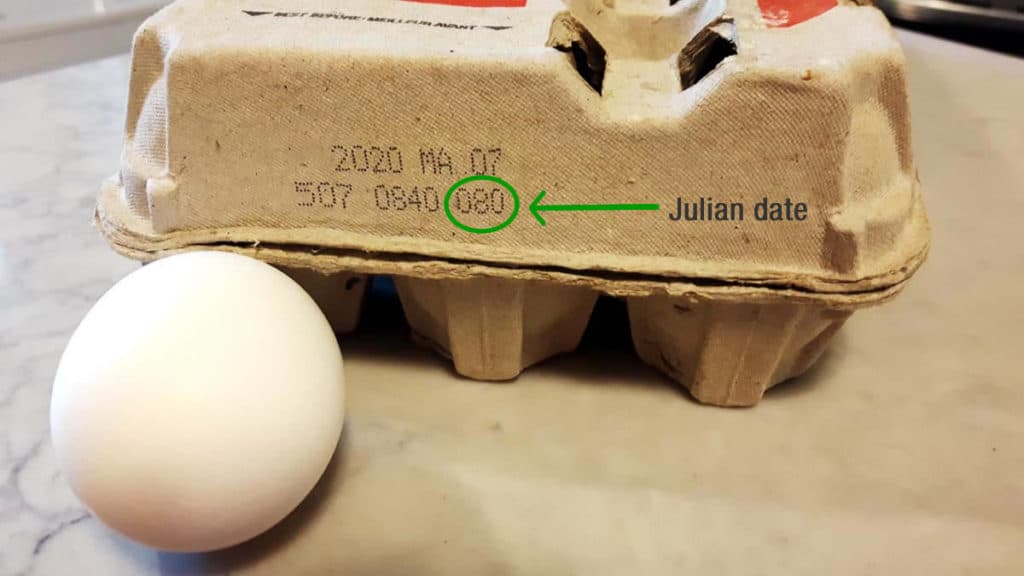
Credit: RusticWise
Do eggs really need to be refrigerated?
Yes. Proper egg storage calls for refrigeration at 40-45 degrees Fahrenheit (4-7 degrees Celsius). This is required to keep eggs at their optimal freshness and prevent harmful bacteria such as Salmonella from growing.
Some of you may have memories of grandparents keeping eggs on the counter, but nowadays that’s a no-no.
How to check egg freshness
Besides checking the best before date and the Julian date on the egg carton, the next easiest thing to do is the floating egg test. You’ll be able to tell the good eggs from the bad eggs at a glance.
Fill a container with water and gently place in a few eggs. If an egg floats it means it’s older. Fresher eggs will sink. Why? Inside an egg is an air cell. The air cell expands as time passes until the egg becomes buoyant.
Just because an egg floats doesn’t mean you have to chuck it. Older eggs may still be safe to eat. To check if the egg is spoiled, simply crack it into a bowl. Your nose will tell you if it’s still good—older eggs have a sulfurous odor. Like they say, if it smells like a rotten egg, it is a rotten egg.
Another indicator of egg freshness is the condition of the yolk and surrounding egg white. Older eggs have a flatter yolk and a thinner white. Use up any good, older eggs quickly.
What if an egg is cloudy? No worries, a cloudy egg is still fresh. This just indicates a higher carbon dioxide level when the egg was laid.
Shelf life of eggs
The USDA has a handy table outlining how long various egg products are good for, according to storage method:
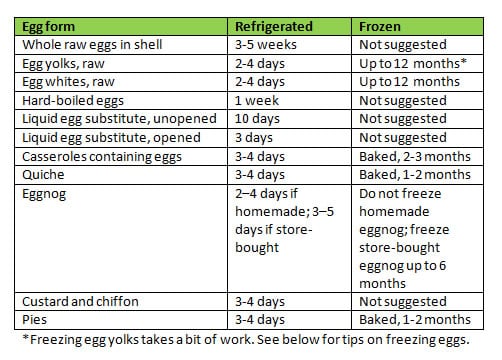
How to properly store eggs
So, how long can eggs last in the fridge? Well, shelf life is partly dependent on proper storage. Eggs should be immediately refrigerated at 40-45 degrees Fahrenheit (4-7 degrees Celsius) when brought home. Place in the main shelves of your fridge and not on the door. This protects eggs from temperature fluctuations every time the fridge is opened or closed.
While those plastic egg caddies that come with some fridges are cute, they can’t beat the cardboard carton. The egg carton it comes in is the best container for storage:
- The carton provides a layer of protection and also prevents the eggs from absorbing any smells and flavors from other food in the fridge.
- The best before or expiry date is clearly marked on the egg carton helping you see which eggs to use first.
- It keeps eggs in the proper storage position which is with the bigger end up to keep yolk centered.
What day of the week do eggs hate?
Fry-day!
Can you freeze eggs?
Yes, you can freeze eggs (without the shell). Here are a few tips:
Egg whites. Carefully crack and separate the yolk from the whites. You can either mix all the whites together before freezing, or use an ice cube tray to make individual portions. Pour into a freezer-friendly container. Make sure to label the date, and the number of egg whites.
Whole eggs (without shells). Crack and beat eggs until well blended. Pour into a freezer-friendly container and label the date and number of whole eggs.
Egg yolks. Freezing egg yolks is a bit trickier due to the texture of the yolk when frozen. To prevent yolks from getting too gooey, you’ll need to add in ONE of the following ingredients (for every four yolks):
- ⅛ teaspoon (0.5 milliliter) salt, OR
- 1½ teaspoon (7 milliliters) sugar or corn syrup
If you’re planning on using the yolks for savory dishes, add salt. For desserts, use a sugar or corn syrup. Remember to label with the date, number of yolks, and the type of additive used.
Hard-boiled yolks. Freezing whole hard-boiled eggs is not recommended as the texture of the egg white becomes unpleasant. But you can freeze hard-boiled yolks with a bit of prep work. Place yolks in one layer in a small saucepan. Add enough water to cover the eggs by 1 inch (2.54 centimeters). Cover and bring to a boil. Remove saucepan from heat and let it continue cooking in the hot water for 15 minutes. Use a slotted spoon to remove and drain. Place in a freezer-friendly container and label.
What if an egg is cracked?
Always inspect the egg carton at the store for any cracked eggs. Harmful bacteria can enter eggs via cracked shells. If an egg accidentally cracks on the way home, no worries. Simply crack the egg into a small bowl and keep in the fridge to use within two days.
Ways to use older eggs
Just because an egg is past its optimal freshness date, doesn’t mean you need to throw it out. Use older eggs for quiches, frittatas, omelettes, egg salad, deviled eggs, and baking.
And remember to keep your egg shells for use in your garden as a natural, calcium-packed fertilizer!

Author: Theresa Tesolin
Theresa is co-founder of RusticWise. She helps people unleash their inner DIY spirit by encouraging them to get dirty and make or grow something from scratch.





